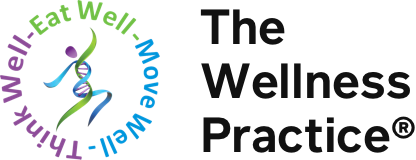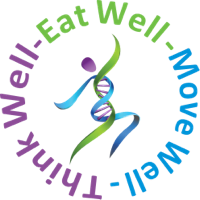©Dr. James L. Chestnut MSc., D.C., C.C.W.P.
The evolution from student, to student clinician, to new practitioner is exciting and challenging. For some it represents a rite of passage from optimistic student to happy, successful clinician. For too many however, this transition represents an emotional, professional, and financial struggle, often tragically ending in a failure to thrive in practice, or in the worst cases, to remain in practice.
The personal cost of an inability to thrive in practice is enormous. The price of chiropractic college is mammoth and without the ability to pay this debt years of financial and emotional stress and even bankruptcy can result. The professional toll is also high. The chiropractic profession cannot survive without successful practitioners and chiropractic schools cannot survive if students know that their chances of success are low while the costs of education are so high. Equally as significant, there are millions of patients who will simply not have access to the chiropractic care they need and who will thus be forced to pursue less effective, less safe, and more expensive alternatives. There is simply no denying that the current rate of failure to thrive in practice represents an urgent crisis within the chiropractic profession and within healthcare.
With the above in mind, and upon request from Chiropractic Economics, I agreed to write this article to provide some insights regarding the required foundations to build and sustain an ethically successful practice. These foundations of success apply to all practitioners, regardless of years in practice; the ability to build and sustain a successful, self-sustaining practice is determined by the same variables. It is just a tremendous advantage to gain the knowledge of, and skillset to build these foundations as early in your chiropractic career as possible. With the cost of chiropractic college so astronomical, the stakes, and pressure, are higher for today’s new graduates than they have ever been.
There are 9 scientific and/or logical steps that are required to achieve any desired outcome; these must be applied to achieving ethical practice success.
The Nine Scientific and Logical Steps for Achieving Ethical Practice Success
1. Identify and define the desired outcome (ethical practice success)
2. Identify the variables that determine ethical practice success
3. Identify the abilities required to influence variables toward ethical practice success
4. Identify the actions required to move variables toward ethical practice success
5. Develop a plan with systems to develop and implement the required skills and actions
6. Follow plan of action and systems for adequate amount of time to elicit change
7. Measure/evaluate results regarding progress toward ethical practice success
8. If success not achieved either continue with current plan or adjust plan as required
9. Repeat steps 5-8 until desired outcome achieved
Ethical practice success is defined as the delivery of ethical care from doctors that elicits highly satisfying patient outcomes in exchange for a fair fee. An ethically successful practice is best defined as one that involves a win-win, highly satisfying relationship between doctor and patient. Thus, the variables that determine ethical practice success are those that determine a high level of mutual satisfaction.
Never forget that patients are most satisfied and most willing to pay for and refer others for care that has resulted in not just perceived but documented health outcomes. Patients are not satisfied paying for care, they are satisfied paying for desired outcomes elicited from care. This is a very important point to understand. The foundation of ethical practice success is satisfied patients paying a fair fee in exchange for documented and perceived benefit from care not simply the receipt of care.
For a doctor to be satisfied they also must feel that their care is eliciting the best possible outcomes. The happiest clinicians with the highest professional self-esteem and satisfaction are those whose patients are most satisfied with their care. Over the years I have surveyed tens of thousands of chiropractors by asking them to write a list of five of their all-time favorite patients. When asked about the criteria they used to come up with their list, none have ever said it was how much money the patient had paid them. All have said it was how much benefit the patients had received and perceived and how satisfied they were with their care, and often how often they referred others.
It would be disingenuous to deny that, for a doctor to feel fully satisfied in practice, in addition to eliciting patient satisfaction based on outcomes, she or he must also be making a fair income. Clearly one of the variables that doctors use to define practice success is profit. There is nothing immoral or unethical or incongruent about a doctor having financial success. The accumulation of a series of fair exchanges of fair fees for patient outcomes naturally and inevitably results in ethical profit.
The more ethical profitable exchanges - the more ethical profit. The number of ethically profitable exchanges and the amount of ethical profit form an indissoluble union and are directly correlated. Thus, by definition, the more ethical profit a doctor makes the more successful health outcomes patients have received. Ethical practice success results in a win-win relationship between doctor and patient. NEVER believe that you have to sacrifice ethics for profit or that making a profit is inherently unethical. Seek to earn ethical profit based on excellent results elicited from excellent care.
A Crucial Fact to Acknowledge: Our Product is NOT the Problem – It is a HUGE ASSET
It is very important to identify the variable that is absolutely, unequivocally, NOT responsible for any lack of individual or professional chiropractic success – our product! Our core unique product, the chiropractic adjustment or chiropractic SMT, is superior when compared to its competitors. The amount of evidence regarding the effectiveness and value of the chiropractic product, and the consumer satisfaction levels of those who purchase this product, is such that the product itself simply cannot be the cause of failure to thrive in chiropractic practice. Doctors, the product is NOT the problem; how you brand, market, explain, and most importantly deliver, the product are the variables determining success or failure.
Further, our product solves a problem and fulfills a need that is pandemic. Spinal health issues are among the most common in the Industrial world and the track record of every other intervention compared to chiropractic adjustment/SMT is, literally, disastrous.
In part 2 I will identify the 4 pillars of self-sustaining ethical practice success and the 6 essential abilities required to build them.
*Addendum
I have spent the last ten years pioneering the application of these new scientific models to new protocols of patient assessment that open the window of wellness and prevention and focus on assessing and addressing the causes of symptoms and illness and the sources of recovery, wellness, prevention, and performance.
One of the most frequent requests I have had is to develop systems or protocols for the easy and efficient implementation of the evidence-based and evidence-informed interventions I have compiled. I have spent the last ten years developing and honing (with clinician feedback and statistical analysis of outcomes) the Eat Well-Move Well-Think Well® Evidence-Based Chiropractic and Lifestyle Protocols. I am absolutely certain these protocols represent the highest possible level of clinical excellence and the greatest possible resource for achieving ethical practice success.
These protocols are easy and quick to learn and implement, they will make your exams and reports more efficient while increasing patient compliance, and they will make your care more evidence-based and improve your patient outcomes which always results in more referrals.
For more information on how to implement these protocols and develop the self-sustaining, successful, enjoyable practice you and your patients want call Dr. Rick Baxter at 250.381.2084 ext 2 or CLICK HERE



